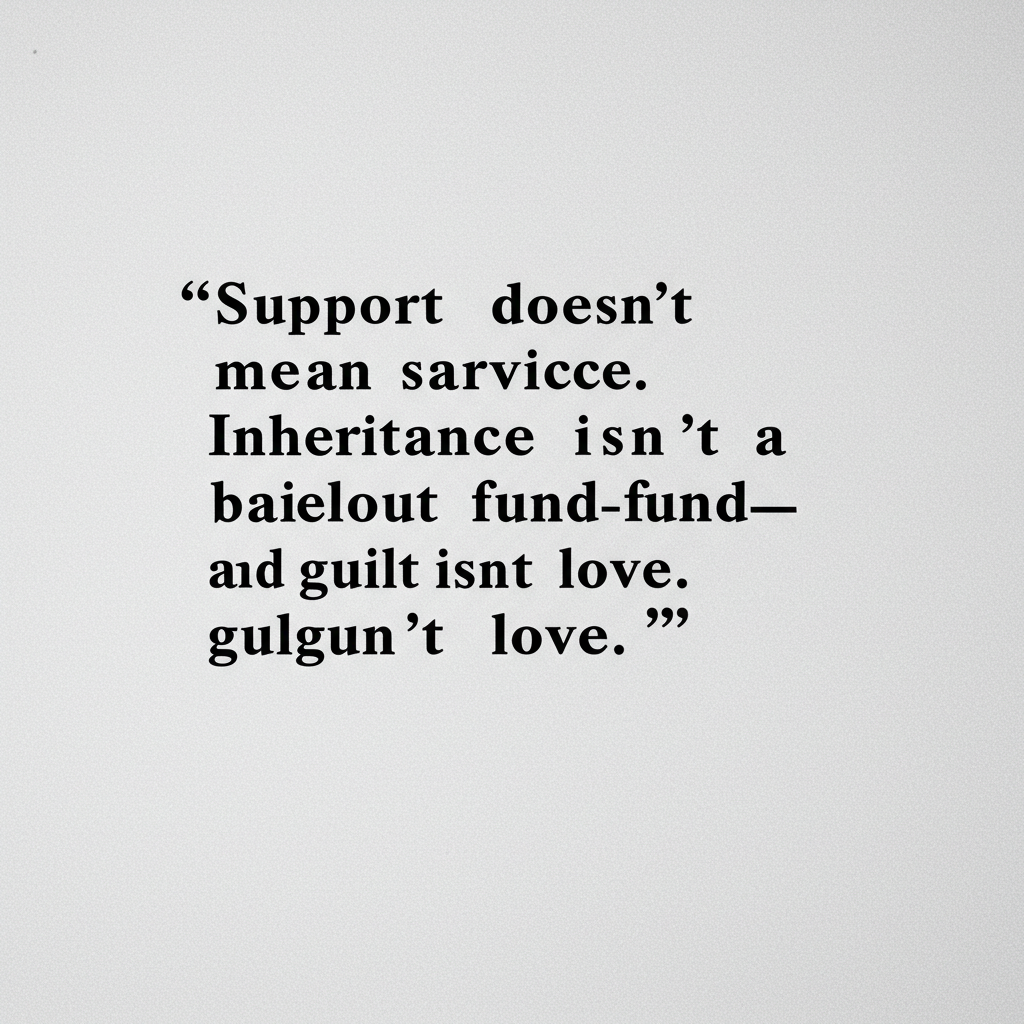AITAH for Not Letting My Husband Use My Inheritance to Pay Off His Debt?
When money enters a marriage, things can get complicated—especially when it comes from one partner’s family. In today’s AITAH-inspired scenario, a woman is left questioning her values and her vows after refusing to share her late father’s inheritance with her financially irresponsible husband.
Is protecting your future selfish—or simply smart?
The Backstory: A Gift Meant for Her

The original Reddit post comes from a 34-year-old woman—let’s call her Sara—who lost her father unexpectedly earlier this year. In his will, he left her $150,000. It wasn’t just money—it was a legacy. Her father had been a blue-collar worker all his life, and he’d saved meticulously to leave something behind for his daughter.
Sara planned to use part of the money to pay for her grad school and save the rest for a down payment on a home. She and her husband, Tim (37), rent a small apartment and had previously agreed to buy a home together once they were financially stable.
But then Tim found out how much she inherited.
The Ask: “Let’s Pay Off My Debt First”

Tim immediately suggested that they use a large portion—nearly $90,000—of the inheritance to pay off his debts. These included credit card balances, an old car loan, and a personal loan he took out years ago to cover “emergency expenses.”
Sara was stunned. She had known Tim had some debt, but not this much—and certainly not that he’d been hiding the total amount from her.
When she said no, Tim accused her of “not being a team player” and reminded her that “marriage means what’s mine is yours.” He called her cold, greedy, and disrespectful to the idea of partnership.
Feeling guilty and conflicted, Sara turned to Reddit to ask: AITAH for not wanting to use my inheritance to pay off my husband’s debt?
Inheritance and Marriage: What’s Fair?

The Case for Sara: Protecting Her Future
Sara’s inheritance was specifically left to her—not to the couple. In most jurisdictions, inherited assets are considered separate property unless commingled. Legally and ethically, she is within her rights to decide how the money is used.
More importantly, Sara had plans for the money that directly benefited both her and Tim’s future: education, a home, long-term stability.
What Tim proposed was erasing past mistakes—most of which he hadn’t even been upfront about.
As one Reddit commenter put it: “Your husband hid $90k of debt from you. That’s not partnership—that’s deception.”
The Case for Tim: Marriage is a Team Sport
From Tim’s point of view, debt is a shared burden in marriage. He may see Sara’s inheritance as an opportunity to wipe the slate clean and start fresh together.
He might feel insecure about the power imbalance money can create in a relationship, especially if Sara is now in a position to make major decisions without needing his input.
Some commenters empathized with him, noting that if the roles were reversed, many would expect a husband to help his wife out of debt.
But deception complicates the issue. Tim didn’t fully disclose his financial situation—yet expected full access to Sara’s funds.
Reddit’s Verdict: Not the Villain

The AITAH community overwhelmingly sided with Sara.
Top comments echoed similar sentiments:
-
“You are not a villain for safeguarding your financial future.”
-
“He hid this from you, then guilted you for not bailing him out.”
-
“Run, don’t walk. This is financial abuse in disguise.”
While a few Redditors urged her to consider counseling and financial transparency, the majority agreed: an inheritance should never be treated as a marital safety net—especially not without trust.
Marriage, Money, and Boundaries

This story brings up a crucial conversation: What happens when one partner comes into money?
Here are a few lessons to take away:
1. Financial Transparency Matters
Hiding debt (or any major financial obligation) from a partner erodes trust. If you’re not financially honest, you’re not emotionally honest either.
2. Inheritance is Not a Joint Asset
Unless agreed upon, inheritance belongs to the individual who received it. Pressuring a partner to share it can quickly become manipulative.
3. Support Doesn’t Always Mean Sacrifice
Sara could still support Tim emotionally, help him plan debt repayment strategies, or even contribute in small, agreed-upon ways. But draining her inheritance isn’t the only—or the healthiest—option.
Should They Stay Together?

Some Reddit users raised the bigger question: Is this marriage sustainable?
If one partner:
-
Hides large amounts of debt,
-
Guilt-trips the other for not bailing them out,
-
Treats financial independence as a threat,
Then it’s time to re-evaluate not just the budget—but the relationship.
Sara isn’t the villain here—but she may need to consider whether Tim is the right partner for the life she’s building.


